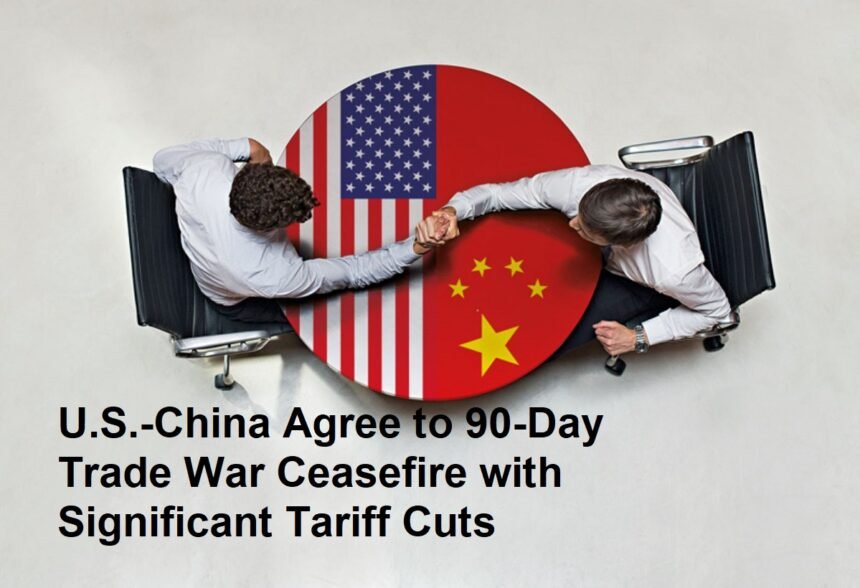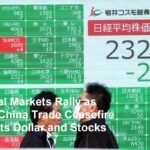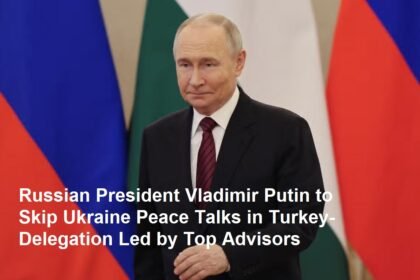On May 13, 2025, the United States and China reached a landmark agreement to implement a 90-day ceasefire in their ongoing trade war, marking a significant step toward easing tensions between the world’s two largest economies. This temporary truce involves substantial reductions in the additional tariffs each country has imposed on the other’s goods, with the United States agreeing to lower its extra tariffs on Chinese products from 145 percent to 30 percent, while China will reduce its additional tariffs on American goods from 125 percent to 10 percent. This agreement not only signals a mutual willingness to de-escalate economic hostilities but also opens a critical window for both nations to negotiate a more comprehensive and lasting trade deal.
The trade conflict between the United States and China has been one of the most consequential economic disputes of the 21st century. It began in earnest in 2018, when the U.S. administration, citing unfair trade practices, intellectual property theft, and a large trade deficit, imposed sweeping tariffs on Chinese imports. China responded in kind, leading to a tit-for-tat escalation that disrupted global supply chains, increased costs for businesses and consumers, and injected uncertainty into international markets. Over the years, the tariff rates climbed to unprecedented levels, with the U.S. imposing additional tariffs as high as 145 percent on certain Chinese goods, and China retaliating with tariffs up to 125 percent on American products.
The newly agreed 90-day ceasefire represents a strategic pause in this escalating conflict. By significantly lowering the additional tariffs, both countries aim to reduce the economic strain on their industries and consumers while creating a more conducive environment for dialogue. The U.S. reduction from 145 percent to 30 percent and China’s cut from 125 percent to 10 percent are substantial concessions, though the tariffs remain above normal levels. These reductions are designed to provide immediate relief and build trust as negotiators work toward resolving deeper structural issues.
This ceasefire is not merely about tariff numbers; it reflects a broader recognition of the interconnectedness of the global economy and the risks posed by prolonged trade hostilities. For businesses, the agreement offers a reprieve from the unpredictability that has hampered investment and planning. For consumers, it may translate into lower prices and more stable product availability. Financial markets have responded positively to the news, with stock indices and commodity prices showing signs of relief after months of volatility.
However, the agreement also underscores the complexity of the U.S.-China trade relationship. The core disputes extend beyond tariffs to include intellectual property rights, technology transfer policies, market access, and state subsidies. These issues have proven difficult to resolve and require detailed negotiations that go beyond the scope of a temporary tariff reduction. The 90-day period is thus a critical window for both sides to engage in substantive talks, with the hope of reaching a comprehensive agreement that addresses these fundamental concerns.
From the U.S. perspective, the tariff reductions are a tactical move to maintain leverage while signaling openness to compromise. American officials have emphasized the need for enforceable commitments from China to protect intellectual property and ensure fair trade practices. Meanwhile, China views the ceasefire as an opportunity to stabilize its economy, which has faced headwinds from the trade war, and to demonstrate its willingness to engage constructively on the world stage.
The international community has welcomed the ceasefire as a positive development. Other major economies, which have been affected by the ripple effects of the U.S.-China trade tensions, see this as a step toward restoring global economic stability. Organizations such as the World Trade Organization (WTO) have expressed hope that the dialogue will lead to a rules-based resolution that strengthens the multilateral trading system.
Despite the optimism, challenges remain. The short duration of the ceasefire means that both countries must act swiftly and in good faith to make meaningful progress. Past negotiations have often stalled due to mistrust and conflicting interests. Moreover, domestic political pressures in both countries could influence the pace and scope of concessions. The global economic environment, including inflationary pressures and supply chain disruptions, adds further complexity to the negotiations.
In conclusion, the 90-day trade ceasefire agreement between the United States and China, featuring significant tariff reductions, represents a hopeful but cautious step toward resolving one of the most significant economic conflicts of recent times. It offers a temporary easing of tensions and a platform for dialogue, but the ultimate success depends on the ability of both nations to address the underlying structural issues that have fueled the dispute. The world watches closely as these two economic giants embark on this critical period of negotiation, hopeful that it will lead to a more stable and cooperative global trade environment.









